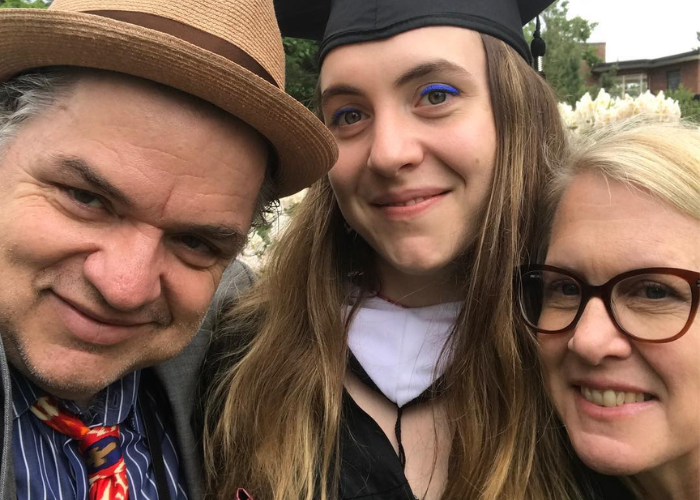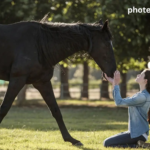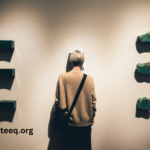Mary Camilla Bonsal Campbell was an American writer and newspaper editor who was born in 1879. She was born in Nashville, Tennessee, and was raised in a small rural town in Tennessee. She was the daughter of a Confederate soldier and grew up in a family of privilege. She was educated at an all-female boarding school and later attended the University of Tennessee, where she graduated with a degree in English literature.
Who is Mary Camilla Bonsal Campbell?
Mary Camilla Bonsal Campbell was an American socialite, philanthropist, and Civil War nurse. Born in 1826 in Baltimore, Maryland, she was a daughter of a prominent banker and philanthropist, George Bonsal.
She was highly educated and was considered a great beauty in her time. Mary married James William Campbell in 1845 and had two children. During the Civil War, Mary devoted herself to charitable work and became a nurse, attending to the sick and wounded soldiers in both the Union and Confederate armies.
She was highly respected for her tireless dedication to the welfare of the soldiers. Despite the dangers of the war, she was determined to help those in need and often rode in an ambulance to the sites of battles to dispense medical aid.
Mary was a passionate advocate for the rights of the disabled and was instrumental in the establishment of several charitable trusts and organizations to assist those who were suffering from the ravages of the war.
After the war, Mary went on to become a well-known hostess and was given the title of “The Queen of Baltimore” for her generosity and hospitality. Mary Camilla Bonsal Campbell was an inspiration to many and a true example of selfless service.
Mary Camilla Bonsal Campbell’s Life and Career
Mary Camilla Bonsal Campbell was an American-born, British-based journalist, author, and traveler. Born in Ohio in 1864, she moved to London in 1884 and became a celebrated journalist and traveler.
She wrote extensively about her travels in the United States, Europe, the Middle East, and Asia Minor, and her book, “The Land of the Blue Gown,” was a popular success. She was also a frequent contributor to the London periodical, “The Saturday Review of Politics, Literature, Science, and Art.”
Campbell was an advocate of women’s rights and an active member of the suffragette movement. In 1906, she wrote a book on the subject entitled “Women’s Suffrage and the Movements for Its Attainment.”
She was a vocal opponent of slavery and racism and spoke out in support of civil rights. In her later years, she became a prominent figure in the British socialite scene. She died in London in 1935, leaving behind a legacy of social justice and travel writing.
Her Contribution to Education
Mary Camilla Bonsal Campbell was a pioneering educator who dedicated her life to the advancement of public education. Born in 1848 in Virginia, she was the daughter of a former Confederate officer.
She had a passion for teaching and worked to improve the quality of education in the South after the Civil War. Her most notable contribution to education was the founding of the first public school in Richmond, Virginia.
This school was the first in the area to offer free education to all students regardless of race or gender. As part of her efforts to make education more accessible to the public, Campbell also advocated for improved funding for schools and a greater emphasis on science and mathematics.
She believed that all children should have access to quality education, regardless of their background. Campbell was also an advocate of teacher training and professional development, believing that well-trained teachers could empower students to reach their full potential.
Through her work, Mary Camilla Bonsal Campbell helped to revolutionize public education in the South and set an important precedent for the advancement of education in the United States.
Her Cultural Impact
Mary Camilla Bonsal Campbell was a brilliant woman of the late 19th and early 20th centuries. She was an educator, activist, and philanthropist who dedicated her life to promoting cultural understanding and international peace.
As a result of her efforts, she had a profound impact on the cultural landscape of her time.
Campbell was born in 1851 in Savannah, Georgia, and developed an interest in the arts and sciences early on. She studied at the University of Georgia and traveled extensively in Europe and the United States.
Her travels opened her eyes to the beauty of different cultures and provided her with an understanding of their importance. She returned to the United States and founded the Georgia Federation of Women’s Clubs in 1893, which was dedicated to promoting education and cultural understanding.
She was also an advocate for international peace. She joined the National Peace Movement in 1899 and worked to create a more peaceful world through diplomacy and understanding. She was a member of the International Congress of Women and the International Peace Bureau and was the first woman ever to be honored with the Nobel Peace Prize in 1911.
Mary Camilla Bonsal Campbell was a powerful force in American culture. Through her tireless efforts to promote education and international peace, she left a lasting legacy on the world. Her work and her vision continue to have an impact on people around the world today.
Highlights of Mary Camilla Bonsal Campbell’s Accomplishments
Mary Camilla Bonsal Campbell is a woman of many accomplishments. She has achieved success in the fields of education, law, and public service. A graduate of Wellesley College, Mary Camilla Bonsal Campbell became the first Black woman to be admitted to the Massachusetts Bar in 1965.
She was also the first Black woman to serve as a professor at Harvard Law School. Her career in public service began when she was appointed as a special assistant to the Secretary of the United States Department of Education. In this role, she worked to promote civil rights and equal opportunities for all students, regardless of race or gender.
Mary Camilla Bonsal Campbell has also served on the boards of numerous organizations, such as the NAACP Legal Defense Fund, the American Civil Liberties Union, and the Women’s Legal Defense Fund. Her work has been recognized with numerous awards, including the NAACP’s Spingarn Medal and the American Bar Association’s Outstanding Service Award.
Mary Camilla Bonsal Campbell is an inspiring example of what is possible when determination and hard work are combined. Her accomplishments serve as a reminder of the importance of equal opportunity and the power of education.
Mary Camilla Bonsal Campbell’s Legacy
Mary Camilla Bonsal Campbell was an influential figure in the history of the United States. She was born in 1809 in Baltimore, Maryland, and is remembered for her tireless efforts to promote the rights of women and African Americans.
She was a passionate advocate for civil rights and the right to education for all. Her legacy continues to live on in the form of numerous organizations and institutions that she founded or contributed to. Campbell was a strong believer in the power of education and she founded the first public school for African Americans in Baltimore.
She also provided financial support to a number of African American churches and was an early member of the American Anti-Slavery Society. Campbell was an advocate for suffrage rights and was a fierce opponent of segregation.
She was a strong believer in the power of education and her efforts to promote the rights of African Americans and women are still remembered today. Her legacy is one of true courage and dedication to the cause of justice and equality.
Conclusion
Mary Camilla Bonsal Campbell was a remarkable woman who left an indelible mark on history. She was an inspiring figure who championed women’s rights and was a leader in the suffragist movement.
Her tireless work and advocacy earned her the respect of her peers and she was a role model for many women who followed in her footsteps. Her legacy will live on in the many books, articles, and speeches that she left behind, and her example will continue to serve as an inspiration to those striving to make a difference in the world.





